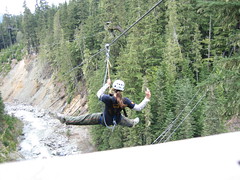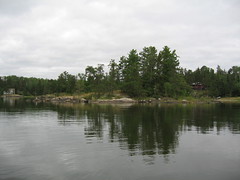Fascinating article in The New Yorker on reading habits.
A recent study has shown a steep decline in literary reading among schoolchildren. No surprise. How do you fit reading into a busy schedule that involves TV, the internet, soccer practice, video games, homework and general nonchalance towards books?
Crain’s article starts with National Endowment Fund reports on the decline in reading, moves to neuroscience and a short history of the printed word and ends with the conclusion that a limited amount of tv can help academic scores but that overuse (and the general turn away from books and towards tv) will change (has already changed) the cultural landscape significantly and will alter our understanding of our world and each other.
It’s a long article but fascinating.
Quote:
There’s no reason to think that reading and writing are about to become extinct, but some sociologists speculate that reading books for pleasure will one day be the province of a special “reading class,” much as it was before the arrival of mass literacy, in the second half of the nineteenth century. They warn that it probably won’t regain the prestige of exclusivity; it may just become “an increasingly arcane hobby.” Such a shift would change the texture of society. If one person decides to watch “The Sopranos” rather than to read Leonardo Sciascia’s novella “To Each His Own,” the culture goes on largely as before, both viewer and reader are entertaining themselves while learning something about the Mafia in the bargain. But if, over time, many people choose television over books, then a nation’s conversation with itself is likely to change. A reader learns about the world and imagines it differently from the way a viewer does; according to some experimental psychologists, a reader and a viewer even think differently. If the eclipse of reading continues, the alteration is likely to matter in ways that aren’t foreseeable.
UPDATE:
More bad news on the reading frontlines. “Canadian book readers fall behind U.S.: poll” by Misty Harris, CanWest News Service, published: Tuesday, January 01, 2008
Read the article.
Quote: According to a new Ipsos Reid survey, which was commissioned by CanWest News Service and Global Television, nearly a third of adults (31 per cent) across the country didn’t read a single book for pleasure in all of 2007. The discouraging figure puts Canadians four points behind the U.S., where an identical poll last August showed 27 per cent of Americans hadn’t picked up a book in the previous 12 months.
The good news is that the 69 per cent of Canadians who were reading in 2007 did so voraciously, with the average person in that group having dug into 20 books over the course of the year. The same number was true for Americans who had read at least one title in the previous 12 months.
I know I shouldn’t doubt this but are 69% really (on average) reading 20 books? That seems really high.














 The Hermetic Code
The Hermetic Code Cartoonist
Cartoonist 

